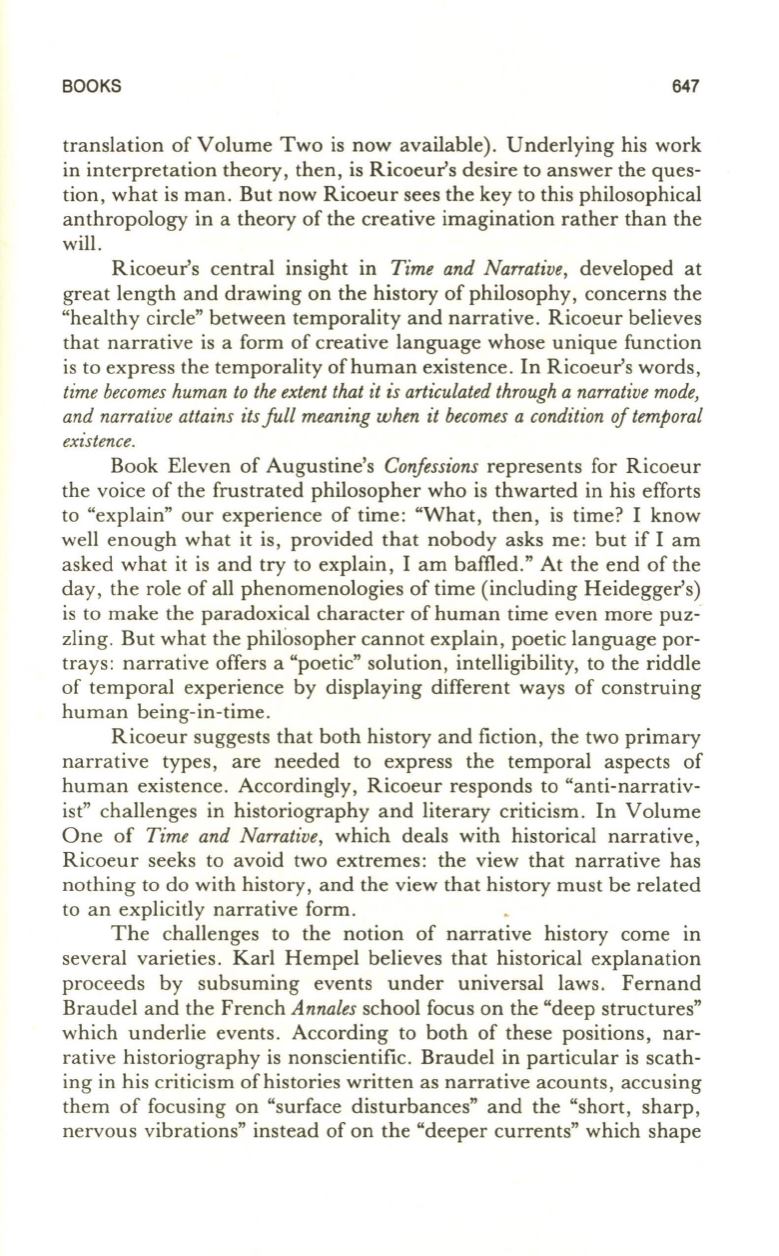
BOOKS
647
translation of Volume Two is now available). Underlying his work
in interpretation theory, then, is Ricoeur's desire to answer the ques–
tion, what is man. But now Ricoeur sees the key to this philosophical
anthropology in a theory of the creative imagination rather than the
will.
Ricoeur's central insight in
Time and Narrative,
developed at
great length and drawing on the history of philosophy, concerns the
"healthy circle" between temporality and narrative. Ricoeur believes
that narrative is a form of creative language whose unique function
is to express the temporality of human existence. In Ricoeur's words,
time becomes human to the extent that it is articulated through a narrative mode,
and narrative attains its full meaning when it becomes a condition
of
temporal
existence.
Book Eleven of Augustine's
Confessions
represents for Ricoeur
the voice of the frustrated philosopher who is thwarted in his efforts
to "explain" our experience of time: "What, then, is time? I know
well enough what it is, provided that nobody asks me: but if I am
asked what it is and try to explain, I am baffled." At the end of the
day, the role of all phenomenologies of time (including Heidegger's)
is to make the paradoxical character of human time even more puz:
zling. But what the philosopher cannot explain, poetic language por–
trays: narrative offers a "poetic" solution, intelligibility, to the riddle
of temporal experience by displaying different ways of construing
human being-in-time.
Ricoeur suggests that both history and fiction, the two primary
narrative types, are needed to express the temporal aspects of
human existence. Accordingly, Ricoeur responds to "anti-narrativ–
ist" challenges in historiography and literary criticism. In Volume
One of
Time and Narrative,
which deals with historical narrative,
Ricoeur seeks to avoid two extremes: the view that narrative has
nothing to do with history, and the view that history must be related
to an explicitly narrative form.
The challenges to the notion of narrative history come in
several varieties. Karl Hempel believes that historical explanation
proceeds by subsuming events under universal laws. Fernand
Braudel and the French
Annales
school focus on the "deep structures"
which underlie events. According to both of these positions, nar–
rative historiography is nonscientific. Braudel in particular is scath–
ing in his criticism of histories written as narrative acounts, accusing
them of focusing on "surface disturbances" and the "short, sharp,
nervous vibrations" instead of on the "deeper currents" which shape


